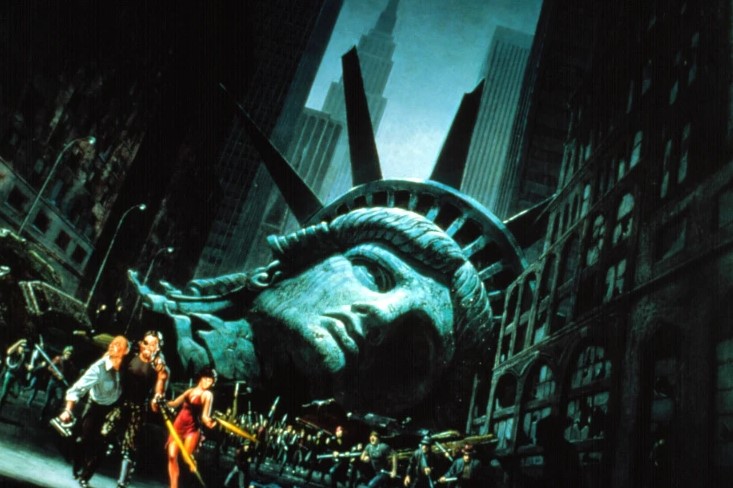Our system has failed to adjust itself to the increasingly doomed tenor of our times. Psychic breakdowns, poverty, an absence of empathy, deaths of despair — this is all now baked into the social contract. And if you want to survive, well, you’d better be just as selfish as the plutocrats gleefully dangling the shiny keys to a castle you can’t enter just before raising the drawbridge. Pay your taxes on time, but we will not respond in a timely manner to your soul-crushing debilities. In fact, we won’t even respond at all, as thousands of Virginian motorists stranded for twenty-four hours on an uncleared stretch of I-95 learned at the start of the year. Fight amongst yourselves. Declare large naval battles in small ponds. Stop saying thank you. Stop helping people. Above all, do not express what’s wrong. Do not mention the disease. Not the virus still ravaging the world, but the illness called late-stage capitalism.
The law of averages no longer works if you’re left to rot while you’re on the skids. Climate change has become just as cartoonish as the Republican Party, taking grandiose lunges with its floods and fires. Increasingly stupider and illiterate people are declared the movers and shakers. They deny science in our hallowed halls. Bounce around TikTok live streams and you’ll see people with thousands of followers struggle for a good hour to solve a common algebra problem that they should have finished in a minute. Post your daily Wordle for all to see! It’s a fairly simple puzzle (you can knock out the vowels on the first try with a word like OUIJA or AUDIO), but this will make you feel better and reaffirmed. The only thing right now that can reassure us. Because government certainly isn’t.
On any given day, America resembles any number of dystopian movies from the 1970s and the 1980s. It turns out that these gloomy motion pictures were the true prophecy and that they significantly underestimated how cruel and faithless our republic would turn. There will be more deranged politicians like Marjorie Taylor Greene and Lauren Boebert who will win in the November midterms. Prepare for more frightening times. Prepare to be left on your own. Prepare for these people to seize power. Because everybody wants everything now. And there is no longer any consideration of the glacial pace that government has always operated at.
There’s no accountability anymore. And even if you can find the courage to rise up and say something, you’ll be subsumed by the army of Russian bots on social media or do-nothing dawdlers looking for a pretext to cancel you. Every mistake that you have ever made in your life can be found and will be used against you. Because the world can only countenance people with sham perfection, people who were likely born into wealth and who have people who can erase their messes, people who somehow remained quite boring and unremarkable throughout their lives or who were assiduous enough to dodge the heightened scrutiny. We used to fear state surveillance. Now we say nothing about how millions have turned into social media snitches and given the digital panopticon far more angles than Jeremy Bentham could have even imagined.
Meanwhile, how much data do the corporations really have on us? Even the most careful person is bound to install an app and unthinkingly allow access to all that private information on your phone. Lists bought and traded against other lists bought and traded. And we become hopelessly addicted to the next app designed to maximize our attention as it scoops all the grit from our phones.
The most talked about television show is Succession, which is all about the rich. One of our most beloved children’s writers is a transphobe. Not even Lin-Manuel Miranda can get a break anymore. Don’t think about the genuine societal threats of systemic racism, guns, and income inequality. It’s just not fun. And if we’re going to be left in the cold to die, why not entertain ourselves to death?
Grown-ass adults now possess the intellectual range and temperament of uneducated tots. Is forty the new thirty? Or is fifty the new forty? Well, someone at Slate will sort this out with yet another insipid hot take. Why bother to grow these days when there’s no future ahead? Why bother to believe in anything when the system is broken?



